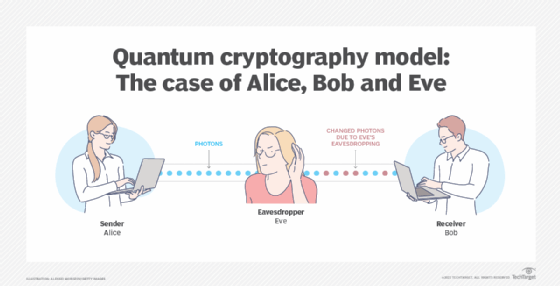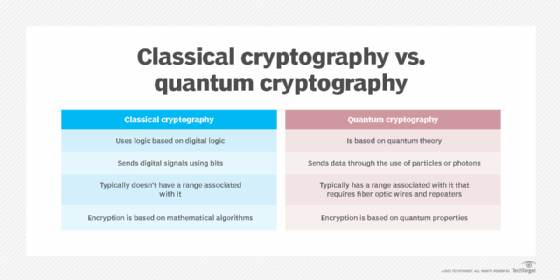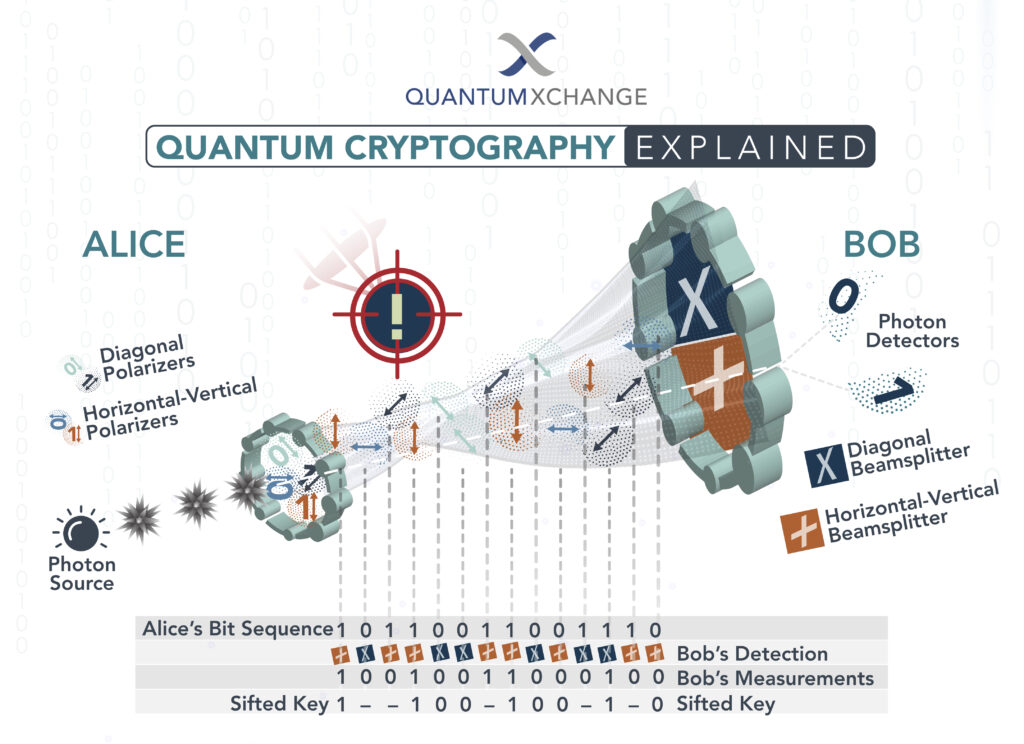As technology advances, so does the need for more secure forms of communication. This is where quantum cryptography comes in. This emerging field of cryptography uses the principles of quantum mechanics to secure communication channels from eavesdropping and hacking attempts. But what exactly is quantum cryptography, and how does it differ from traditional cryptography methods?
Quantum cryptography is a technique that uses quantum mechanics to ensure the confidentiality and integrity of data transmission. It works by using the properties of quantum particles, such as photons, to establish a secure communication channel between two parties. Unlike traditional cryptography methods that rely on mathematical algorithms, quantum cryptography relies on the laws of physics to protect the data. The result is a communication channel that is virtually impossible to hack or intercept, providing a level of security that is unmatched by any other method. In this article, we will delve deeper into the world of quantum cryptography and explore its potential applications in the modern world.

What is Quantum Cryptography?
Quantum Cryptography is an emerging field of cryptography that utilizes the principles of quantum mechanics to provide enhanced security for communications. It is an intriguing combination of physics and mathematics that allows for secure communication over an untrusted network. Quantum cryptography is based on the principle of quantum entanglement, which is the phenomenon of particles being linked together, such that a change in one particle will cause an immediate change in the other. This provides an unbreakable link between two parties, allowing for secure communication without the risk of eavesdropping.
Quantum Encryption
Quantum cryptography utilizes the principles of quantum mechanics to provide enhanced encryption for data transmission. It works by encoding data into quantum states, which are then transmitted over a channel. This quantum encoding ensures that the data is secure and cannot be accessed by a third-party. The sender and receiver of the data must both have access to a quantum key, which is used to decrypt the data. This ensures that the data is secure and cannot be accessed by anyone other than the sender and receiver.
Quantum encryption works by utilizing the principles of entanglement. This means that every bit of information that is sent is entangled with its partner. If one bit is changed, the other bit is immediately changed as well. This makes it impossible for an eavesdropper to access the data, as any attempt to do so will cause the data to become scrambled. This ensures that the data remains secure and that the sender and receiver are the only ones who have access to it.
Quantum Key Distribution
In addition to providing encryption, quantum cryptography also provides a method for securely distributing quantum keys. This is done using a process known as quantum key distribution (QKD). In QKD, two parties share a quantum key that is used to encrypt and decrypt data. The quantum key is generated using a quantum algorithm and is transmitted over a secure channel. This ensures that the quantum key is not intercepted by a third-party and can only be accessed by the two parties involved.
Quantum key distribution is an important part of quantum cryptography as it provides a secure way to share a quantum key between two parties. This ensures that the data transmitted is secure and cannot be accessed by a third-party. This is important in ensuring the security of communications between two parties and is an essential part of quantum cryptography.
Frequently Asked Questions
Quantum cryptography is a method of secure communication that uses quantum mechanical properties to protect information. It is an emerging technology that has the potential to revolutionize the way data is secured and transmitted over communication channels.
What is quantum cryptography?
Quantum cryptography is a method of secure communication that uses quantum mechanical properties to protect information. It relies on the laws of quantum mechanics to make it impossible for data to be intercepted and decrypted without the sender and receiver being aware of the interception. Quantum cryptography is also known as quantum key distribution (QKD) and can be used for both public and private networks.
Quantum cryptography uses individual photons as the medium for encoding and transferring data. Photons can be manipulated such that they can only be read by the intended receiver. This ensures that the data is securely transferred without the risk of being intercepted or decrypted by a third-party. The security of quantum cryptography is based on the laws of quantum mechanics, which makes it theoretically impossible to break.
What are the benefits of quantum cryptography?
The main benefit of quantum cryptography is its unparalleled level of security. Unlike traditional cryptographic methods, which can be broken with enough computing power, quantum cryptography is theoretically unbreakable. This means that data sent over a quantum communication channel cannot be intercepted or decrypted by a third-party. This makes it ideal for sensitive data, such as financial transactions or military communications.
Another benefit of quantum cryptography is its speed. Quantum cryptography can transfer data at much higher speeds than traditional methods, making it ideal for applications that require real-time data transfer, such as remote control of drones or autonomous vehicles. Additionally, quantum cryptography can provide secure communication over long distances with little to no signal degradation.
What are the limitations of quantum cryptography?
The main limitation of quantum cryptography is its cost. Quantum cryptography requires special equipment and expertise, which makes it expensive to implement. Additionally, quantum cryptography is limited by distance. Currently, the maximum distance for a quantum communication link is around 100 kilometers due to the limitations of fiber optics.
Another limitation of quantum cryptography is its scalability. It is difficult to extend quantum cryptography to larger networks, as each node in the network must be connected to each other via a secure link. Additionally, quantum cryptography requires a trusted source of photons, which can be difficult to achieve in a large network.
What is the future of quantum cryptography?
The future of quantum cryptography is very promising. Currently, the technology is primarily used for research and testing, but it is expected to become more widely available in the near future. As the technology matures, quantum cryptography is expected to be used for a wide range of applications, from secure financial transactions to secure data storage.
In addition, quantum computing is also expected to revolutionize quantum cryptography. Quantum computers can process data much faster than traditional computers, which could make quantum cryptography more efficient and more secure. This could lead to increased adoption of quantum cryptography in the future.
Is quantum cryptography secure?
Yes, quantum cryptography is extremely secure. It relies on the laws of quantum mechanics to make it impossible for data to be intercepted or decrypted without the sender and receiver being aware of the interception. This makes it theoretically unbreakable, making it ideal for sensitive applications, such as financial transactions or military communications.
Additionally, quantum cryptography is resistant to side-channel attacks, meaning that it is not vulnerable to attacks that target the underlying hardware or software of the system. This makes it much more secure than traditional cryptographic methods.

What is Quantum Cryptography? An Introduction
In conclusion, quantum cryptography is a revolutionary technology that has the potential to transform the world of cybersecurity. With its ability to leverage the principles of quantum mechanics to create unbreakable encryption keys, this emerging field offers a new level of security that is virtually impenetrable to hackers and other malicious actors.
As the world becomes increasingly connected and reliant on digital technologies, the need for effective cybersecurity measures has never been more urgent. Quantum cryptography offers a solution to this problem that is both innovative and effective, and has the potential to play a major role in protecting sensitive information and critical infrastructure from cyber threats. As this field continues to evolve and mature, it is likely that we will see even greater advances in quantum cryptography and its applications in the years to come.

